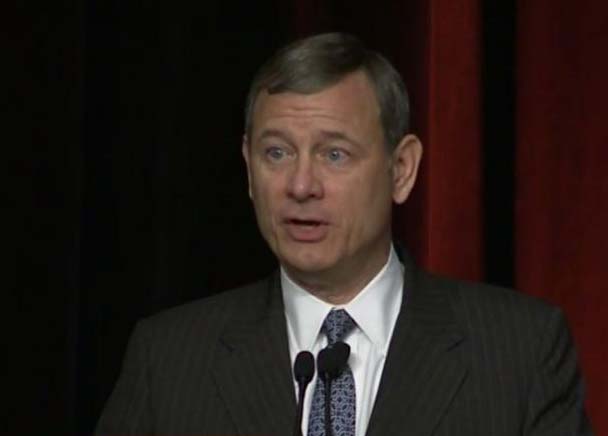
The "does-he-doesn't-he" question is prompted by a case the court decided without oral arguments at the end of the recently completed term. The justices ruled in favor of same-sex couples, but did so in a way that has turned those who closely follow the court's actions into a debating society.
And the answer could be important for more than curiosity's sake. The court already has accepted for next term a case about whether business owners must provide services for gay unions even if they are religiously opposed, and the nation's courts are filling with cases about how far the 2015 same-sex marriage ruling extends.
Usually, there is no question about where the justices stand. One of the Supreme Court's boasts about its transparency is that justices put their names on their work, joining the reasoning of a majority or dissenting opinion or writing their own.
"Except sometimes they don't," said Joshua Matz, a former clerk to Justice Anthony Kennedy and proprietor of a legal blog called Take Care.
And one of the times they don't is when issuing a "per curium" decision, an unsigned opinion that is filed on behalf of the court.
The per curium decision said Arkansas's justices had failed to properly apply the court's landmark decision that gay couples have a constitutional right to marry, Obergefell v. Hodges.
"Differential treatment infringes Obergefell's commitment to provide same-sex couples 'the constellation of benefits that the states have linked to marriage,' " the unsigned opinion said.
The court's three most conservative justices objected. Justices Clarence Thomas and Samuel Alito joined a dissent written by new Justice Neil Gorsuch, which said the court should have accepted the case for full briefing and argument because the outcome wasn't nearly as clear-cut as the majority claimed.
"Nothing in Obergefell spoke (let alone clearly) to the question" raised in the Arkansas case, Gorsuch wrote. (Parenthetically, the parenthetical in that line has been interpreted by some as a shot at Kennedy, who wrote Obergefell and for whom Gorsuch clerked on the Supreme Court.
Noticeably absent from the dissent was Roberts, who was on the losing side in Obergefell. He issued a strongly worded dissent in that case and underlined his opposition by reading a summary of it from the bench, the first and only time he has taken such a step in more than a decade on the court.
Same-sex couples are justified in celebrating their newly found right, he said, but added tartly "the Constitution has nothing to do with it."
But if Roberts wasn't with the named dissenters in the recent Arkansas case, does that mean he was with the unnamed majority?
Constitutional scholar Erwin Chemerinsky said during a recent panel discussion at the University of California at Irvine Law School that the answer was yes and the vote should be seen as 6 to 3.
Law professor Leah Litman said she wasn't sure Chemerinsky could make such a claim. But another panelist, Alex Kozinski, the celebrated and conservative longtime judge on the U.S. Court of Appeals for the 9th Circuit, was definitive:
Yes, Roberts was in the majority.
When there is a published opinion and a justice does not note being in dissent, said Kozinski (yet another person who used to call Kennedy boss), the justice has signed on to the majority.
"No doubt about it," Kozinski said.
Will Baude, a University of Chicago law professor and former Roberts clerk who has closely studied the per curium decisions, rulings on emergency filings and stay requests that collectively have been referred to as the court's "shadow docket," is skeptical of Kozinski's pronouncement.
"We don't know for sure, but I think he's probably wrong," Baude said.
Baude said it is clear that justices do not always note their dissents when it comes to dealing with emergency stay applications, for instance. And he said it seems likely that there are times when justices simply don't note their dissents.
Matz titled his commentary "No, the Chief Justice Did Not Just Embrace Obergefell" and said there could be several reasons for a justice to secretly dissent: "For instance, to conceal one's views from the public and thereby retain future flexibility; as a display of good will to the majority or the institution as a whole; or to avoid needlessly creating the appearance of conflict."
Perhaps Roberts didn't like Gorsuch's dissent. Perhaps the chief thought the Arkansas case not worth taking.
Because the five members of the Obergefell majority - Kennedy and Justices Ruth Bader Ginsburg, Stephen Breyer, Sonia Sotomayor and Elena Kagan - remain, Roberts certainly knows there is no way of dislodging Obergefell as precedent, and perhaps he thought it covered the Arkansas case, whether he liked it or not.
Kozinski said at the UCI panel that judges know when they are outnumbered and it is not worth taking up a case you are sure to lose. "It's a matter of arithmetic," he said.
But it doesn't dictate what a judge might do in the next case, he said, if circumstances - for instance, the court's membership - change.


 Contact The Editor
Contact The Editor
 Articles By This Author
Articles By This Author